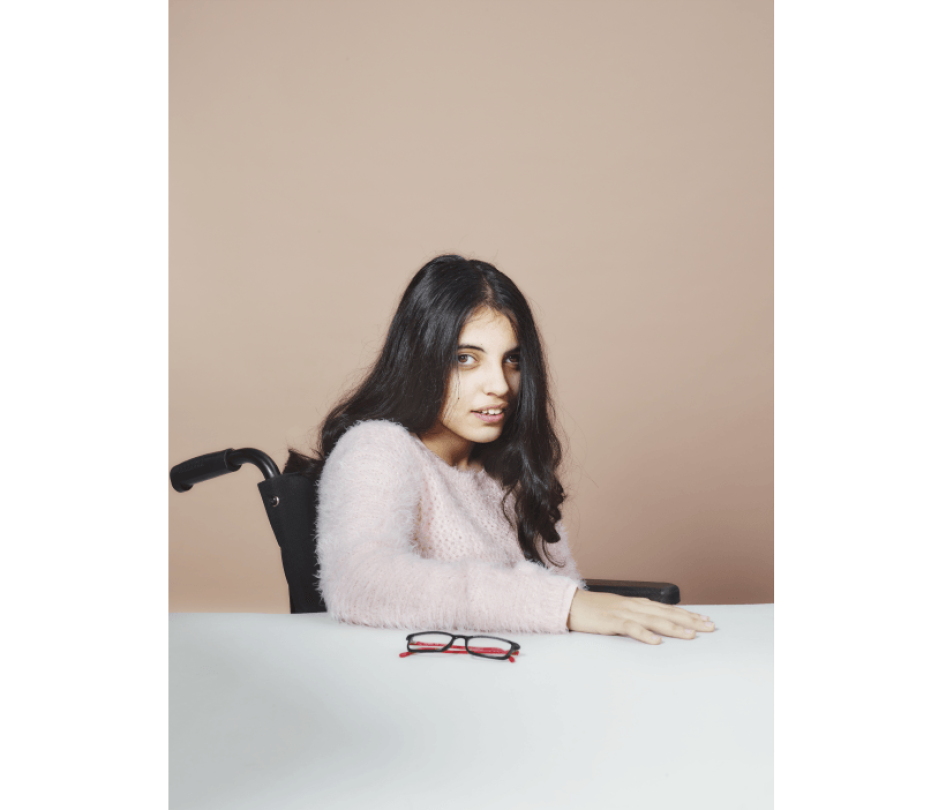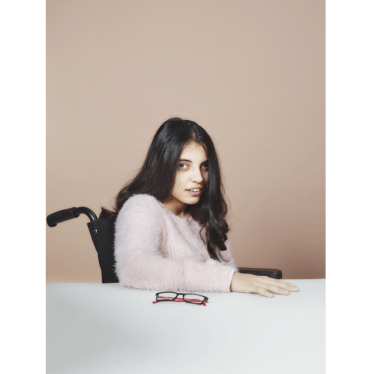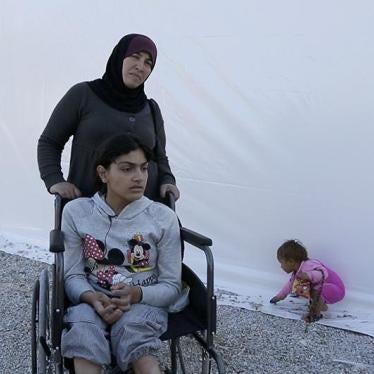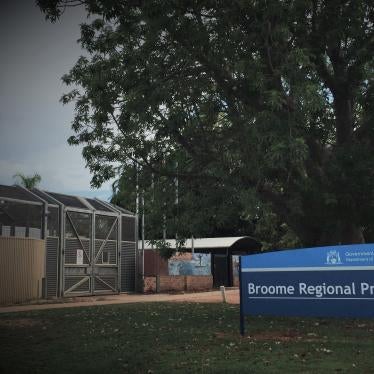At the age of 16, Nujeen Mustafa fled the war in Syria and endured a harrowing 5600-kilometer journey to Europe. It took 16 months, from Turkey to Germany, across the treacherous Mediterranean to Greece, Northern Macedonia, Serbia, and Hungary. All of this in her wheelchair. Her older sister, Nisreen, pushed her every step of the way.
Along the route to Germany, the sisters braved rugged terrain, detention, interrogations, and police stations. They endured freezing temperatures and days of eating only sugar cubes and Nutella. And yet, Nujeen considers herself lucky. She has remarkable resilience, a positive spirit, and a sense of hope. She told the BBC's Fergal Keane that she "enjoyed" the grueling trek from Aleppo to Cologne, as it included the chance to ride a train and a boat for the first time.
This week, Nujeen visited Australia to share her story and accept Human Rights Watch's 2019 Alison Des Forges Award for Extraordinary Activism. She is truly extraordinary.
Growing up in Aleppo with cerebral palsy, unable to walk without assistance, Nujeen didn't experience a typical childhood. "Having a disability in Syria means that you need to be hidden away," she told me. "You are someone who is pitied. In my case, I was lucky that my family was so supportive." But living in a five-story building with no elevator meant that she never attended school. As she wrote in her 2016 book, The Girl from Aleppo: Nujeen's Escape from War to Freedom, she taught herself English by watching American soap operas and National Geographic documentaries.
Now living in Germany, she is enrolled in school for the first time and is becoming fluent in German. She also finds time to speak out for the rights of refugees, particularly refugees with disabilities, drawing attention to the need for shelter, services, and compassion.
But Nujeen doesn't really like the term "refugee." As she explained in her TEDx talk: "The word 'refugee' has lost its meaning because it's become synonymous with a plague, a swarm, a disease that is feared will spread.... Few things in this world are worse than feeling like an unwelcomed guest."
She can relate to the nearly 1000 refugees and asylum seekers trapped in dire conditions on Papua New Guinea and Nauru, due to Australia's "offshore processing" policy. Last July, the United Nations refugee agency observed "a high level of tension and further deterioration in the mental health of refugees and asylum seekers on Manus Island". When Nujeen learned about the conditions on the islands, she was shocked: "I know what it's like to live in constant anxiety, to not know what the next day will bring. It's mentally and physically exhausting. I didn't expect such conditions off the coast of Australia. When you are a refugee, you are a just a number. But we are more than that. We are people. Humans."
Since 2012, more refugees with disabilities have been on the mainland after a change to the resettlement policy. But needed support services haven't increased. A February 2019 report by the Refugee Council of Australia, the National Ethnic Disability Alliance, the Federation of Ethnic Communities' Councils of Australia, and the Settlement Council of Australia found that refugees with disabilities living in Australia face a number of barriers to inclusion in the community - from lack of mobility devices and other essential aids to lack of adequate and accessible housing.
In one case, a refugee with a disability who arrived in Australia was placed in short-term accommodation without facilities to support her basic needs. Just to take a shower, her husband had to carry her to a taxi and accompany her to a local sports center, which has an accessible bathroom. They needed to pay for the taxi and to use the sports center.
Nujeen had a similar experience finding an accessible toilet in a refugee camp in Greece. "As a refugee you have to be a good bladder holder," she said. "But it's even harder for refugees with disabilities, as you often don't find many accessible toilets. Toilets and other basic services shouldn't be a luxury in the 21st century."
With governments, donors, and aid agencies overwhelmed with many competing priorities during emergencies, the needs and concerns of people with disabilities are often overlooked. But they have a right to the same assistance as anyone else.
As Prime Minister Scott Morrison said on Friday, in his emotional announcement about the three-year Royal Commission on violence, abuse, neglect and exploitation against people with disabilities: "They deserve our respect."
As for her message on this trip to Australia, Nujeen told me: "I want to emphasize that people with disabilities should not be underestimated. Even in more advanced societies, there is an assumption of what people with disabilities can and cannot do."
Nujeen continues to shatter these perceptions, having persevered through so much at the young age of 20. She dreams of becoming an astronaut. I don't doubt she will achieve this goal, too.










